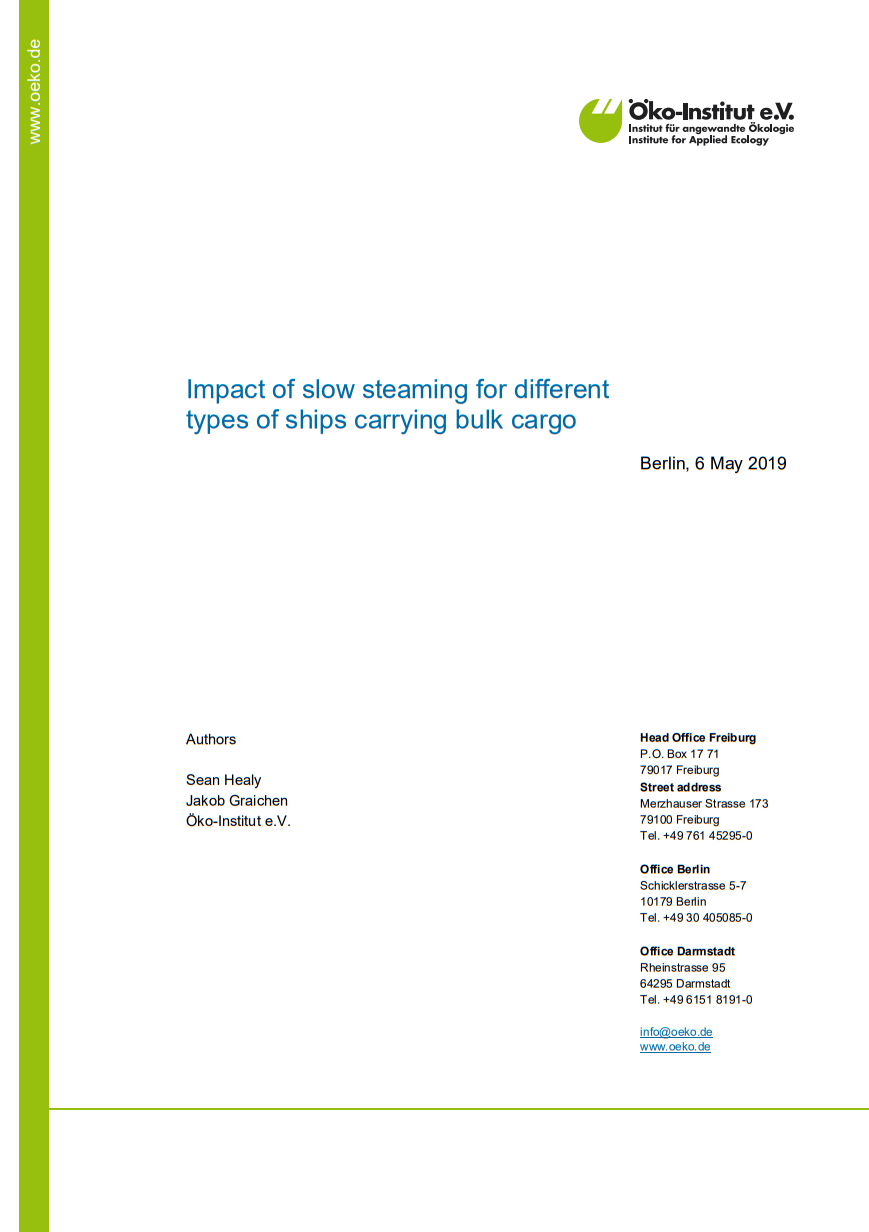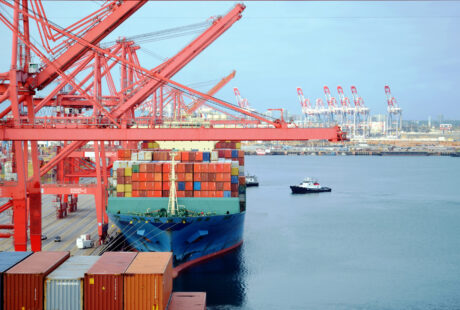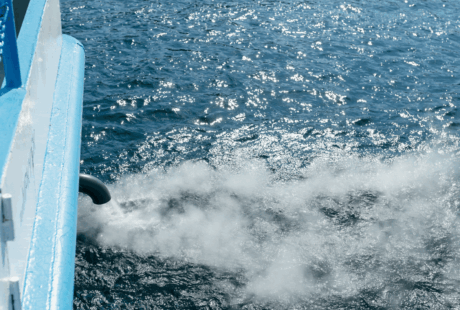This study assessed the impact of reduced ship speed on dry bulk carriers on different assumptions with regards to the price of fuel, daily earnings and the relationship between the use of main power and electric power on the vessel. The main finding of the study is that reduced ship speed results in most cases in a reduction of transport costs. This study was jointly commissioned by Seas At Risk and Transport and Environment and carried out by the Öko-Institut e.V., one of Europe’s leading independent research and consultancy organisations, providing science-based analysis to governments and corporations. The study uses the costs methodology developed by Martin Stopford, perhaps the leading maritime economist.

Posted on: 10 May 2019



